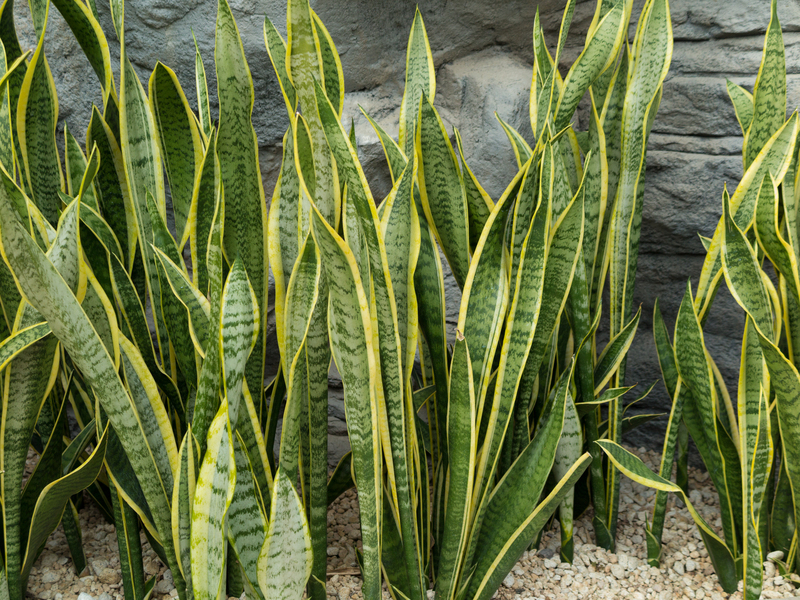From Waste to Rich Soil: The Organic Transition
Posted on 01/06/2025
From Waste to Rich Soil: The Organic Transition
The journey from waste to rich soil is a transformative process essential for sustainable agriculture and environmental conservation. *Turning organic waste into fertile soil brings myriad benefits, promoting healthier food, reducing pollution, and nurturing ecosystem balance*. This comprehensive guide explores how an organic transition converts leftover food and organic matter into valuable, life-sustaining earth, whether for a home garden or a large-scale farm.
Why the Organic Transition Matters
Every day, mountains of food scraps, yard trimmings, and organic material end up in landfills. When improperly managed, this waste produces greenhouse gases like methane and pollutes our environment. Transforming waste into rich, organic soil not only addresses these problems but actively reverses them, turning what was once discarded into the backbone of sustainable living.
- Reduces Landfill Waste: Composting diverts substantial organic matter from waste streams.
- Lowers Greenhouse Gases: Proper decomposition in composting reduces methane emissions.
- Improves Soil Health: Organic matter feeds beneficial microbes, worms, and soil life.
- Boosts Crop Yields: Fertile, organic soils nurture thriving plants naturally.
- Closes the Nutrient Loop: Waste products are recycled back into the ecosystem.
"In the natural world, nothing is wasted; every ending becomes a new beginning for life, especially in healthy soil."

The Science Behind Waste to Rich Soil Conversion
Decomposition: Nature's Recycling
Decomposition is the natural breakdown of organic material by bacteria, fungi, and invertebrates. This fundamental process is at the heart of the organic transition from waste to soil. As plant stems, leaves, and food scraps decompose, they release nutrients that enrich the soil, creating a dynamic, living system that supports abundant plant growth.
Compost: The Engine of Soil Formation
*Compost* is the product of carefully managed decomposition, producing a dark, crumbly material teeming with life. Rich compost acts as a powerful soil amendment, supplying essential nutrients and beneficial microbes.
- Carbon: Browns like leaves, cardboard, and straw provide carbon for energy.
- Nitrogen: Greens such as food scraps and grass clippings supply nitrogen for growth.
- Moisture and Air: Water and aeration ensure decomposition occurs aerobically, avoiding foul odors.
By balancing these components, anyone can create microbial gold--compost that turns waste into rich, productive soil.
Composting Methods for Every Scale
Transitioning organic waste to healthy soil isn't a one-size-fits-all effort. Whether you have a balcony planter or acres of farmland, there's a composting method suited to your needs. Let's explore several popular techniques:
Backyard Composting
*Backyard composting* is the most accessible form. A simple bin or pile layered with 'greens' and 'browns' and turned regularly will yield rich compost in a few months. Key tips:
- Maintain a 3:1 ratio of 'browns' (leaves, cardboard) to 'greens' (food scraps, grass clippings).
- Keep the pile moist, like a wrung-out sponge.
- Turn the compost regularly to aerate and speed up decomposition.
- Monitor temperature; active piles heat up, hastening breakdown.
Vermicomposting: Harnessing Worm Power
Vermicomposting uses red wiggler worms to eat through kitchen scraps, producing castings--an ultra-enriched form of compost. Worm bins can be kept indoors or outside, making them ideal for apartments and small spaces.
Hot Composting
Hot composting requires careful management of temperature and ingredients. By keeping piles at 130-160?F (55-70?C), pathogens and weed seeds are killed, resulting in finished compost in as little as 3-8 weeks.
Bokashi: Anaerobic Fermentation
Bokashi composting is an anaerobic process using specialized microbes to ferment kitchen waste rapidly. The process produces a pre-compost material ideal for burying in garden beds, where it quickly completes its transformation into rich, organic soil.
Municipal & Commercial Composting
Many cities now collect food and yard waste, turning neighborhood contributions into high-quality, screened compost for community gardens and farms. On a commercial scale, sophisticated facilities accelerate the journey from waste to valuable soil amendments using industrial methods, often producing soil on a massive scale.
What Can and Cannot Be Composted
Understanding what materials contribute to healthy compost is essential for the organic transition from waste to enriched earth.
- Compost These: Fruit and vegetable scraps, coffee grounds, eggshells, tea bags, leaves, grass clippings, shredded paper, cardboard.
- Avoid These: Meat, dairy, oily foods, diseased plants, plastics, treated wood, pet waste (unless using specialized systems).
By following these guidelines, you ensure a clean, productive transformation of waste to rich, organic soil--safe for food crops and flower beds alike.
The Benefits of Organic-Enriched Soils
1. Soil Health and Microbial Diversity
*Living soils* are alive with thousands of microscopic organisms: bacteria, fungi, protozoa, and nematodes. These microbes cycle nutrients, suppress diseases, and create healthy plant partnerships. Organic matter from compost feeds this army, building resilient, fertile soils.
2. Water Efficiency
*Soil amended with compost* holds water like a sponge, reducing irrigation needs. This elevates drought resilience and helps prevent erosion, keeping nutrients where they're needed most.
3. Enhanced Disease and Pest Resistance
*Plants grown in organic-rich soils* develop stronger immune systems and are better equipped to fend off pests and diseases. The soil's biodiversity creates natural checks and balances, reducing reliance on synthetic chemicals.
4. Higher Yields and Nutrition
Organic soil is mineral-rich, translating into healthier, more nutritious vegetables, fruits, and grains. Many studies show higher yields on farms and home gardens using compost and organic amendments instead of chemical fertilizers.
How to Make the Transition: Step-by-Step Guide
Converting kitchen scraps or agricultural leftovers into nutritious soil is surprisingly simple. Here's a step-by-step process to start your own waste to rich soil organic transition today:
- Collect Your Waste: Use a countertop bin to collect fruit, vegetable peels, coffee grounds, and eggshells. Yard trimmings, dry leaves, and cardboard can be stockpiled separately.
- Choose Your Composting Method: Decide based on your space--backyard bin, worm bin, Bokashi, or municipal service.
- Build Your Pile or Bin: Layer greens and browns, ensuring aeration and moisture. For worm bins, add bedding like shredded newspaper.
- Monitor and Maintain: Turn compost regularly, track moisture (not too wet or dry), and adjust as needed.
- Harvest and Apply: Finished compost will be dark, earthy, and crumbly. Use to amend garden beds, lawns, potted plants, or as a top dressing.
Pro Tip:
To speed decomposition, chop larger items and maintain a balance between wet (green) and dry (brown) materials. Regular turning and moisture checks are essential for a fast, odor-free process.
Scaling Up: Organic Transition for Farms
*Large-scale organic farming* relies on converting agricultural and livestock byproducts into high-quality compost. Manure, crop residues, and cover crops all contribute to soil regeneration.
- On-site Composting: Farms can build windrows or static piles, ensuring temperatures reach 55-65?C to eliminate pathogens and weed seeds.
- Integration: Compost is spread on fields before planting or as a side dressing to replenish nutrients naturally.
- Crop Rotation and Cover Crops: These add organic matter and break pest cycles, speeding the transition from organic waste to rich, living soil.
Many successful organic farms attribute their fertility and resilience to years of compost application and natural soil amendments. This regenerative approach builds long-term soil health--a foundation for thriving, organic food systems.
Case Studies: Success Stories from Around the Globe
Urban Community Gardens
In cities like New York and San Francisco, neighborhood composting programs transform food and yard waste into rich soil for community gardens. These efforts support local food production and educate residents about the circle of sustainability.
Industrial Organic Farms
Large organic farms in California and Europe utilize compost made from food processing byproducts and green waste, improving yields and carbon sequestration. Soil carbon storage is now recognized as a vital climate solution.
Schools and Educational Institutions
Schools from primary grades to universities are embracing composting, using cafeteria waste to teach biology, chemistry, and ecology. Schools close the waste loop and grow gardens, creating hands-on learning and a new generation of soil stewards.
Common Challenges and How to Overcome Them
- Odors: Caused by too much moisture or addition of meat/dairy. Remedy: aerate piles, maintain the correct balance, avoid forbidden items.
- Pests: Attracted to exposed food scraps. Remedy: bury new additions, use secure bins, and avoid adding meat or oily foods.
- Slow Decomposition: Often due to low nitrogen or lack of aeration. Remedy: add more 'greens' and turn the pile often.
- Lack of Space: Try worm bins or Bokashi indoors, or join a community compost program.
By troubleshooting these issues, you'll be on the fast track to turning waste into living, organic soil--no matter your situation.

Organic Transition: The Bigger Picture
The movement from waste to rich soil is much more than composting; it's a paradigm shift toward sustainability. With global food waste contributing significantly to climate change, small changes--like composting at home--have big impacts.
- Individuals: Reduce individual carbon footprints, grow healthier food, and beautify landscapes.
- Communities: Foster stronger social bonds, local food resilience, and cleaner neighborhoods.
- Planet: Mitigates climate change, enhances soil, and protects water quality.
Conclusion: Join the Journey from Waste to Rich Soil!
Transitioning organic waste into fertile, living soil is an empowering act for you, your community, and the earth. It's a vital part of the organic revolution, whether practiced in a backyard, balcony, school, or farm. By embracing the organic transition, you become an essential link in the cycle of renewal--turning yesterday's scraps into tomorrow's abundance.
Ready to start your own journey from waste to rich soil? Start composting, spread the word, and witness the transformation of waste into the foundation of organic life.
Further Reading and Resources
Let's build a future where nothing goes to waste, and every bit of organic matter helps grow a healthier world!
Latest Posts
Grow Your Privacy with These 9 Fast-Growing Hedges
The Ultimate Guide to Herb Garden Mastery
Elevate Your Outdoor Experience With Stunning Garden Seating



